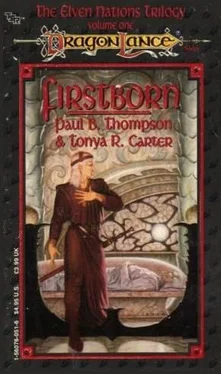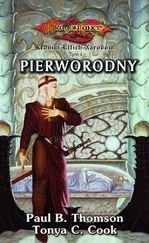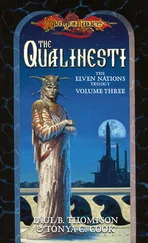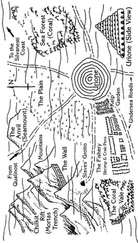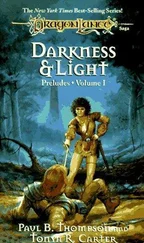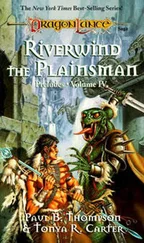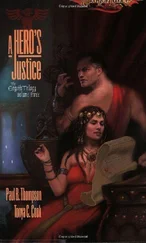Paul Thompson - Firstborn
Здесь есть возможность читать онлайн «Paul Thompson - Firstborn» весь текст электронной книги совершенно бесплатно (целиком полную версию без сокращений). В некоторых случаях можно слушать аудио, скачать через торрент в формате fb2 и присутствует краткое содержание. Жанр: Фэнтези, на английском языке. Описание произведения, (предисловие) а так же отзывы посетителей доступны на портале библиотеки ЛибКат.
- Название:Firstborn
- Автор:
- Жанр:
- Год:неизвестен
- ISBN:нет данных
- Рейтинг книги:3 / 5. Голосов: 1
-
Избранное:Добавить в избранное
- Отзывы:
-
Ваша оценка:
- 60
- 1
- 2
- 3
- 4
- 5
Firstborn: краткое содержание, описание и аннотация
Предлагаем к чтению аннотацию, описание, краткое содержание или предисловие (зависит от того, что написал сам автор книги «Firstborn»). Если вы не нашли необходимую информацию о книге — напишите в комментариях, мы постараемся отыскать её.
Firstborn — читать онлайн бесплатно полную книгу (весь текст) целиком
Ниже представлен текст книги, разбитый по страницам. Система сохранения места последней прочитанной страницы, позволяет с удобством читать онлайн бесплатно книгу «Firstborn», без необходимости каждый раз заново искать на чём Вы остановились. Поставьте закладку, и сможете в любой момент перейти на страницу, на которой закончили чтение.
Интервал:
Закладка:
As the bride’s entourage rounded the curve, the press of the crowd became greater and the cheering intensified. The shadow cast by the Tower of the Stars fell across the street. It was thought to be good luck to stand in the structure’s shadow, so hundreds were crammed into the narrow space.
On a sudden impulse, Hermathya abandoned her distant, serene demeanor and smiled. The cheering increased. She raised her free hand and waved, once to the people of Silvanost. A roar went up such as the City had never heard, a roar that excited her.
In the Temple of E’li, Sithas heard the roar. He was kneeling before the high priest, about to be anointed with sacred oils. He raised his head slightly and turned one ear toward the sound. The warrior who knelt behind him whispered, “Shall I see what is the matter, Lord?”
“No” replied Sithas levelly. “I believe the people have just met the bride.”
The Temple of Quenesti Pah, goddess of health and fertility, was a light, airy vault with a roof of transparent tortoiseshell. There was no great central tower, as in most of the other temples. Instead, four thin spires rose from the comers of the roof, solid columns of rock that reached skyward. Though not as imposing as the House of E’li, or as somber as the Temple of Matheri, Hermathya thought the Temple of Quenesti Pah the prettiest building in Silvanost.
The pipers, sistrum players, and flower girls all turned aside and flanked the entrance to the temple. The honor guard halted at the foot of the steps.
Nirakina stepped up beside Hermathya. “If you have finished performing for the crowd, we will go in.” In her tone could be detected a sharpness, and Hermathya hid a smile. Without replying, Hermathya gave the crowd one last wave before she entered the temple.
Nirakina watched her ascend the steps. She was really trying to get along with the girl, but every passing moment added to her irritation. For Sithas’s sake, she wanted the marriage to be a success, but her overwhelming feeling was that Hermathya was a spoiled child.
Inside, the ritual was brief, consisting of little more than prayers and the washing of Hermathya’s hands in scented water. Nirakina hovered over her, her distaste for the younger woman’s behavior just barely concealed. But Hermathya had understood Nirakina’s annoyance, and she found that she enjoyed it. It added to her sense of excitement.
The ritual done, the bride rose to her feet and thanked Miritelisina, the high priestess. Then, without waiting for Nirakina, she walked swiftly from the temple. The crowd was waiting breathlessly for her reappearance, and Hermathya did not disappoint them. A thunder of approval built from the back of the crowd, where the poorest elves stood. She flashed them a smile, then moved with quick grace down to Kencathedrus. Nirakina hurried after her, looking harassed and undignified.
The procession reformed, and the pipers played “Children of the Stars,” the ancient tune that every elf knew from childhood. Even Hermathya was surprised, however, when the people began to sing along with the pipers.
She slowed her pace and gradually stopped. The procession strung out until the pipers in the fore realized that those behind had halted. The music swelled higher and louder until Hermathya felt that she was being lifted by it.
With little prelude, the bride sang. At her side, Kencathedrus looked at her in wonder. He glanced over his armored shoulder to Lady Nirakina, who stood silent and straight, arms held rigidly at her sides. Her voluminous sleeves covered her tightly clenched fists.
Some in the crowd ceased their own singing that they might hear the bride. But as the last verse of the song began, they all joined in; once more the sound threatened to raise the city from its foundations. When the last words of “Children of the Stars” faded in the throats of thousands, silence fell over Silvanost. The silence seemed more intense because of the tumult earlier. Everyone assembled in the street, every elf on rooftops and in tower windows had his or her eyes on Hermathya.
Casually the bride took her hand from Kencathedrus’s arm and walked through the procession toward the Tower of the Stars. The flower girls and sistrum-bearers parted in complete silence. Hermathya walked with calm grace through the ranks of the pipers. They stood aside, their silver flutes stilled. Up the steps of the Tower of the Stars she moved, appearing in the doorway alone.
Sithas stood in the center of the hall, waiting. With much less fanfare, he had come from the Temple of E’li with his retainers. Farther inside, Sithel sat on his throne. The golden mantle that lay on the speaker’s shoulders spread out on the floor before him, trailing down the two steps of the dais, across the platform and down the seven steps to where Sithas stood. In front of the throne dais was an ornate and intricately carved golden tray on a silver stand. On the tray rested the golden rings the couple would exchange.
Hermathya came forward. The silence continued as if the entire elven nation was holding its breath. Part of the sensation was awe, and part was amazement. The bride of the speaker’s heir had broken several traditions on her way to the tower. The royal family had always maintained an aloofness, an air of unbreachable dignity. Hermathya had flaunted herself before the crowd, yet the people of Silvanost seemed to love her for it.
Sithas wore ceremonial armor over his robe of gold. The skillfully worked breastplate and shoulder pieces were enameled in vibrant green. Though the cuirass bore the arms of Silvanos, Sithas had attached a small red rosebud to his sleeve, a small but potent symbol of his devotion to his patron deity.
When Hermathya drew near, he said teasingly, “Well, my dear, has the celebration ended?”
“No,” she said, smiling sweetly. “It has just begun.”
Hand in hand, they went before Sithel.
The feasting that began that evening continued for four days. It grew quite wearing on the newlyweds, and after the second day they retired to the fifth floor of the Quinari tower, which had been redecorated as their living quarters. At night, Hermathya and Sithas stood on their balcony overlooking the heart of the city and watched the revelries below.
“Do you suppose anyone remembers what the celebration is for?” asked Hermathya.
“They don’t tonight. They will tomorrow,” Sithas said forcefully.
Yet he found it difficult being alone with her. She was so much a stranger to him—and always, in the back of his mind, he wondered if she compared him to Kith-Kanan. Though they were nearly identical in looks, Sithel’s heir knew that he and his brother were worlds apart in temperament. Sithas grasped the balcony rail tightly. For the first time in his life he was at a loss as to what to do or say.
“Are you happy?” Hermathya asked after a long, mutual silence.
“I am content,” he said carefully.
“Will you ever be happy?” she asked coyly.
Sithas turned to his wife and said, “I will endeavor to try.”
“Do you miss Kith-Kanan?”
The calm golden eyes clouded for a moment. “Yes, I miss him. Do you, Lady?”
Hermathya touched the starjewel she wore pinned to the throat of her gown. Slowly she leaned against the prince and slipped an arm about his waist. “No, I don’t miss him,” she said a little too strongly.
6 — The Same Day, in the Forest
Shorn of his armor and city-made clothes, Kith-Kanan padded through the forest in a close-fitting deerskin tunic and leggings such as Mackeli wore. He was trying to circle Mackeli’s house without the boy hearing him.
“You’re by the gray elm,” Mackeli’s voice sang out. And so Kith-Kanan was. Try as he might, he still made too much noise. The boy might keep his eyes closed so he wouldn’t see the heat of Kith-Kanan’s body, but Mackeli’s keen ears were never fooled.
Читать дальшеИнтервал:
Закладка:
Похожие книги на «Firstborn»
Представляем Вашему вниманию похожие книги на «Firstborn» списком для выбора. Мы отобрали схожую по названию и смыслу литературу в надежде предоставить читателям больше вариантов отыскать новые, интересные, ещё непрочитанные произведения.
Обсуждение, отзывы о книге «Firstborn» и просто собственные мнения читателей. Оставьте ваши комментарии, напишите, что Вы думаете о произведении, его смысле или главных героях. Укажите что конкретно понравилось, а что нет, и почему Вы так считаете.
